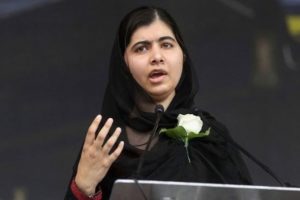‘Great Games’ was used to describe the fierce fight by rival powers for spheres of influence in the unforgiving swathes of South-Central Asia (modern day Afghanistan), at the crossroads of civilisations. Each foreign power had remained paranoid about the advent of the other, even though history is witness to the fact that no foreign power could ever hold on to these lands and its fearsome tribes for long.
Native Afghans remained unruly and violent bystanders, as each foreign power jostled with the other ~ shifting their own alliances, whenever a better deal was on offer. But eventually each power realised the cold reality of the sobriquet ‘Graveyard of Empires’. Images immortalised on canvas and film of colonial soldiers limping and retreating home miserably, be it the British, Russian, American or even Pakistani, are true. Yet the haunting imagery of the famous painting ‘Remnants of the Army’, showing the sole survivor of British General Elphin stone’s battered Army riding a bedraggled horse back to Jalalabad, is usually forgotten in the quest to control the landlocked country. Regional powers like Pakistan have fancied their chances of aspiring for ‘Strategic Depth’ in Afghanistan, suggesting a pliant state, or strictly in a militaristic sense to use Afghan territory as a strategic rallying point to retreat and regroup for a counter attack. But suffice to say, despite many Pakistani efforts, investments, and creation of ostensibly pro-Pakistan forces like the Taliban, it too faces the inevitable consequences of other foreign powers that earlier tried to control the narrative.
Advertisement
The man responsible for seeding the concept of ‘Strategic Depth’ was the dour, conservative and ultra-ambitious Chief of Pakistani Army who succeeded General Zia-ul-Haq i.e., Gen Mirza Aslam Beg. Under Beg’s tutelage and patronisation, yet another unhinged Pakistani Director General of Inter-Services-Intelligence i.e., Lt Gen Hamid Gul (infamous as the ‘father of Taliban’), would interfere in the internal affairs of Afghanistan. Situationally, the Afghan fighters took help from the Pakistani ‘establishment’ to dislodge the Soviet/ Russia propped Najibullah regime, but true to their fiercely independent nature, refused to kowtow or remain beholden to the Pakistani ‘establishment’ beyond a point. There were certain factions of Taliban and warlords like Gulbuddin Hekmatyar (feared as the ‘Butcher of Kabul’) that were on Pakistani payrolls, but the loyalties of Afghan warlords remained fickle, unpredictable and uncontrollable.
Beyond the outcomes of Pakistani support for the mujahedin in the 1980s and of certain factions in the 90s, the civilian view about India remained largely positive (despite India’s support to the largely unpopular Najibullah earlier). Unlike the brazen visibility and control of Pakistani levers on bloody Afghan soil ~ India was not seen as interfering or manipulative, and the ‘soft power’ of Indian largesse, entertainment industry or even folklore of treatment to ‘Kabuliwallas’ ensured a certain societal warmth and affection. Even when the repressive and oppressive Taliban government took over in its first outing, the pain and deprivation of the common person on the street manifested in their silent, unsaid and unmistakable ire at Islamabad, as the principal force behind Afghan pain.
Later, when the Taliban were ousted and the KarzaiGhani era ushered in, the Indian footprint and imagination was positively limited to the realm of supporting reconstruction, aid and civilian support, thereby weakening the perceptions about the Pakistanis even further. Pakistan instinctively and prematurely celebrated the ouster of Ashraf Ghani’s West-supported regime in 2021, thinking that the much-aspired Pakistan ‘Strategic Depth’ was finally fructifying. The eerie picture of a jubilant DG-ISI (Lt Gen Faiz Hamid) amongst the raucous Taliban cadres’ hours after the Americans had abandoned the country, showed Pakistani desperation. Clearly, the Pakistani policy makers and certainly its ‘establishment’ did not learn from history ~ the Afghan was not, is not, and cannot, ever be servile to anyone beyond a point, least of all to the despised Pakistanis, who were always seen as the dark and broody forces of machinations in the Afghan conscience. While the Talibanis entertained the Pakistanis tactically for a few days as the deriguer shaming of the ousted ‘West’ (and other allies) happened ~ the storyline wasn’t exactly going as the Pakistanis had hoped for.
India too had retracted and pulled out of Kabul (as it did not officially recognise the new Taliban government), but it wasn’t as if the Pakistani writ was all over. There was a global lull and isolation for the Taliban regime, save for Pakistanis, but soon enough the presence and interference of Pakistanis in internal affairs of Afghanistan led to violent spats across the invisible and unrecognised Durand Line. Indians were officially out of Kabul and watched from the sidelines, as the Afghan Taliban turned on the Pakistanis. Today Afghanistan is the biggest security concern for Pakistan, and vice versa. More people have died on the Durand Line than all fatalities put together in four official wars (1947- 48, 1965, 1971 and 1999) with India.
Counter-intuitively, the Afghan Taliban who have no real axe to grind with India are actively wooing Delhi to normalise the relationship ~ they know that bonhomie with India has the support of its entire civilian populace. The reality is that the Taliban with all its imperfections and concerns is here to stay with no realistic chance of its removal in the near future. Delhi too has responded favourably to diplomatic overtures with calculated engagements. Delhi realises the permanence of Af-Pak fracture on the popular Afghan psyche and more importantly the need to support desperate Afghan civilians on humanitarian grounds.
The fact that the full utility of the ultra-strategic Chabahar port in Iran (with Indian collaboration) as a gateway to Central Asia runs through Afghan land, strengthens the logic of engagement with Afghanistan. Recently, India’s top diplomat, Vikram Misri, met Afghanis tan’s Acting Foreign Minister, Mawlawi Muttaqi in Dubai in order to accede to the Afghan request for help in the health sector and rehabilitation of refugees. As if on cue to India’s concerns, the Afghan side, “underlined its sensitivities to India’s security concerns” thereby defraying any possibility of Afghan soil to be misused by Pakistani interests.
Now India must tread carefully (but surely) given the expected tumult from the incoming Donald Trump regime and its own expected exertions on Iran (context of Chabahar becomes pertinent), and the fact that it has had historical relations with the moderate Afghan forces that were ousted in 2021. Perhaps, by not over-interfering and attempting to usurp Afghanistan like the great superpowers or the not-so-great regional powers like Pakistan, India can still remain relevant as a force for good and regional stability. Times have changed, equations have changed, and the landscape offers new possibilities for India to engage with Afghanistan, whilst never forgetting history.
(The writer is Lt Gen PVSM, AVSM (Retd), and former Lt Governor of Andaman & Nicobar Islands and Puducherry)











